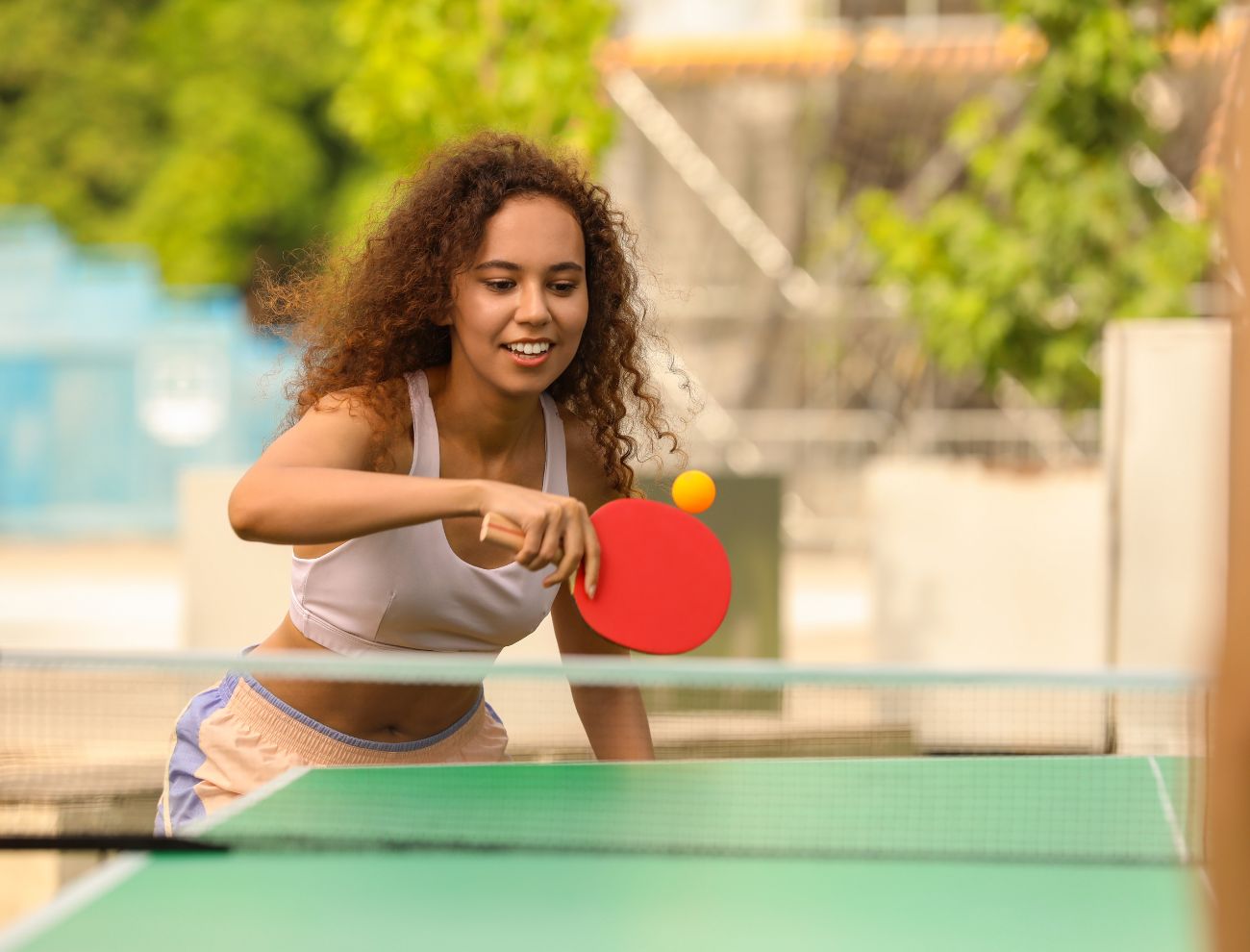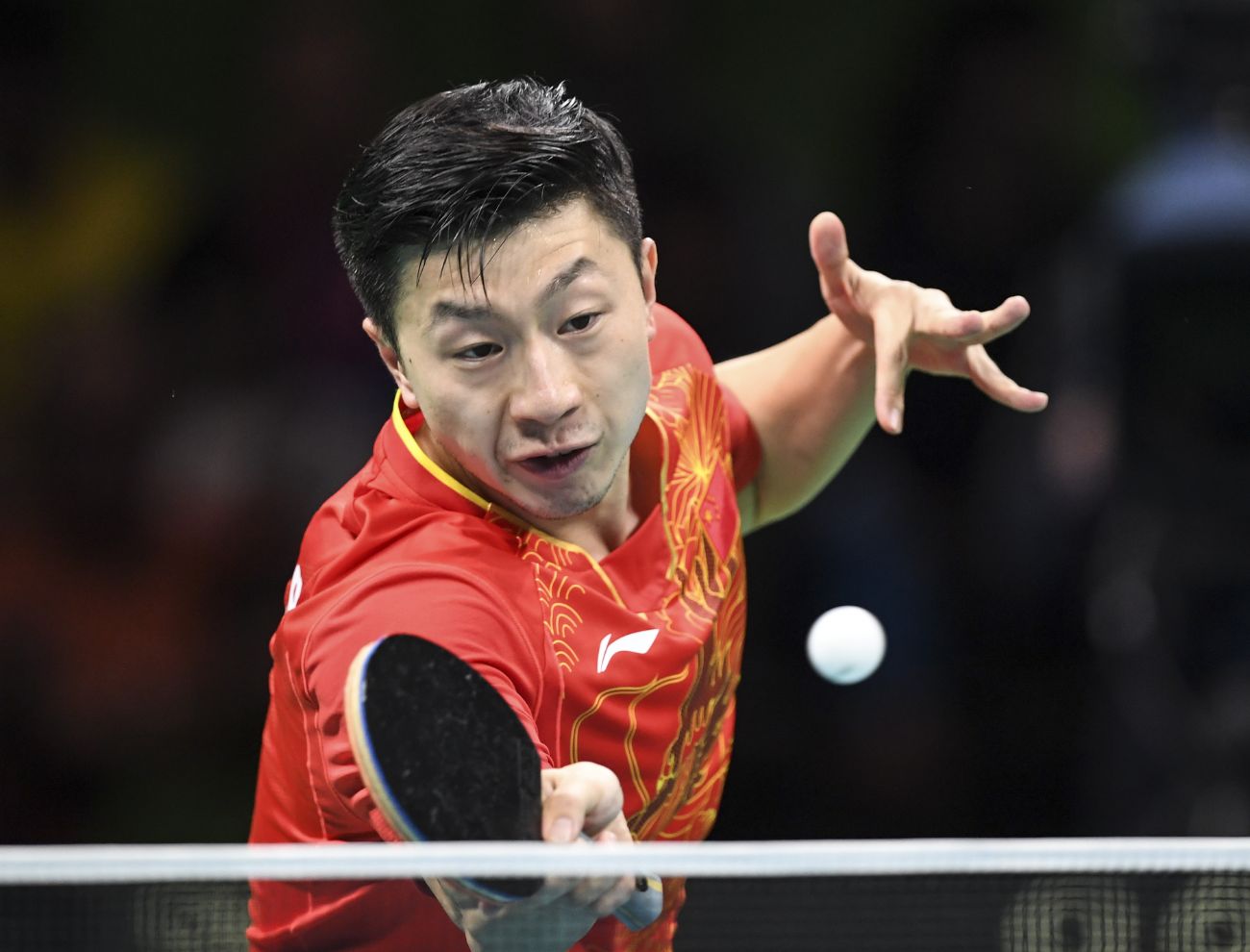
The Psychological Aspects of Table Tennis: Mental Toughness and Strategy
Table tennis, often seen as a simple game of hitting a ball back and forth, is much more complex than it appears. The sport demands quick reflexes, precise movements, and sharp strategic thinking. However, beyond the physical skills, table tennis is deeply rooted in mental toughness and strategy. The psychological aspects of the game play a crucial role in determining a player’s success. In this blog, we will explore the mental side of table tennis, discussing strategies for maintaining focus, handling pressure, and the psychological tactics used by top players.
The Importance of Mental Toughness
Mental toughness is the ability to stay focused, confident, and resilient, especially under pressure. In table tennis, where matches can be fast-paced and intense, mental toughness is essential.
Staying Focused
One of the key aspects of mental toughness is the ability to maintain focus. In a sport where a single point can make the difference between winning and losing, staying concentrated is crucial. Top players train their minds to block out distractions and stay in the moment.
Focus is about centering your attention on the present task and not letting your mind wander to past mistakes or future outcomes.
Dr. Patrick Cohn, Sports Psychologist
Building Confidence
Confidence is another vital component of mental toughness. Believing in your abilities can enhance your performance significantly. This confidence is built through consistent practice, positive self-talk, and visualization techniques. For instance, imagining yourself successfully executing a serve or a smash can boost your confidence during an actual game.
Resilience Under Pressure
Resilience is the ability to recover from setbacks quickly. In table tennis, players often face challenging situations where they might lose a few points in a row. The best players are those who can bounce back from these setbacks without letting them affect their overall performance.
I’ve missed more than 9,000 shots in my career. I’ve lost almost 300 games. 26 times, I’ve been trusted to take the game-winning shot and missed. I’ve failed over and over and over again in my life. And that is why I succeed.
Michael Jordan, NBA Legend
Strategies for Maintaining Focus
Maintaining focus during a match is not always easy. Here are some strategies that top players use to keep their concentration sharp:
Pre-Game Routine
Having a pre-game routine helps players get into the right mindset before a match. This routine can include physical warm-ups, mental visualization, and calming exercises. By following a consistent routine, players signal to their minds that it’s time to focus and perform.
Breathing Techniques
Breathing techniques are often used to stay calm and focused. Deep breathing exercises can help reduce anxiety and bring a sense of calmness. Players might take deep breaths between points to reset their focus and manage their stress levels.
Mindfulness and Meditation
Mindfulness and meditation practices can improve a player’s ability to stay present and focused. Mindfulness involves paying attention to the present moment without judgment. It helps players to stay aware of their thoughts and feelings without getting overwhelmed by them.
Research has shown that mindfulness training can enhance athletes’ performance by improving their focus and reducing anxiety.
Source: Journal of Sports Sciences
Handling Pressure
Pressure is an inevitable part of competitive sports, and table tennis is no exception. Players often find themselves in high-stakes situations where the pressure to perform is immense.
Here are some psychological tactics to handle pressure effectively:
Positive Self-Talk
Positive self-talk involves using encouraging words and phrases to boost confidence and reduce anxiety. Phrases like “I can do this,” “Stay calm,” and “Focus on the next point” can help players manage pressure. According to a study published in the Journal of Applied Sport Psychology, positive self-talk can enhance performance by improving self-confidence and reducing stress.
Visualization
Visualization is a powerful tool used by many top athletes. It involves imagining successful performances and outcomes. By visualizing themselves playing well and winning, players can build confidence and reduce anxiety. This mental rehearsal prepares their minds for actual performance under pressure.
Goal Setting
Setting specific, achievable goals can help players manage pressure. These goals can be related to performance, such as improving a particular skill, or outcomes, such as winning a certain number of points. By focusing on these goals, players can direct their energy and attention away from the pressure and towards their objectives.
Psychological Tactics Used by Top Players
Top table tennis players use various psychological tactics to gain a competitive edge. Here are some of the strategies they employ:
Reading the Opponent
Reading the opponent involves observing their body language, habits, and patterns to predict their next move. By understanding their opponent’s tendencies, top players can anticipate shots and react more effectively. This psychological tactic gives them an advantage in outsmarting their opponents.
Mental Games
Top players often engage in mental games to disrupt their opponent’s focus and confidence. This can include subtle actions like taking a little extra time before serving, changing the pace of the game, or using body language to project confidence. These tactics can unsettle opponents and give the player a psychological edge.
Staying Composed
Maintaining composure is crucial in table tennis. Top players are known for their ability to stay calm and composed, even in high-pressure situations. They do not let their emotions take over, which helps them make better decisions and perform consistently. According to a study published in the International Journal of Sports Science & Coaching, emotional control is a key factor in achieving peak performance in sports.

Case Study: Ma Long’s Mental Toughness
Ma Long, a Chinese table tennis player, is often regarded as one of the greatest players of all time. His success can be attributed not only to his physical skills but also to his mental toughness. Ma Long’s ability to stay focused, handle pressure, and use psychological tactics has set him apart from his competitors.
Focus and Concentration
Ma Long is known for his exceptional focus and concentration. He follows a strict pre-game routine that includes mental visualization and breathing exercises. This routine helps him get into the right mindset before a match and maintain his focus throughout the game.
Handling Pressure
Ma Long has faced numerous high-pressure situations in his career, including multiple Olympic finals. His ability to stay calm and composed under pressure is remarkable. He uses positive self-talk and visualization techniques to manage his anxiety and perform at his best.
Psychological Tactics
Ma Long is also a master of psychological tactics. He reads his opponents well and adjusts his game strategy accordingly. His mental games and ability to stay composed give him a psychological edge over his competitors.
Conclusion
Table tennis is not just a game of physical skills; it is a mental battle as well. The psychological aspects of the sport, such as mental toughness and strategy, play a crucial role in determining a player’s success. By maintaining focus, handling pressure, and using psychological tactics, players can gain a competitive edge and perform at their best.
Whether you are a beginner or an experienced player, understanding and improving the mental side of your game can significantly enhance your performance. As you continue to practice and play, remember that your mind is just as important as your physical skills. With the right mental strategies, you can achieve your goals and excel in the exciting world of table tennis.






